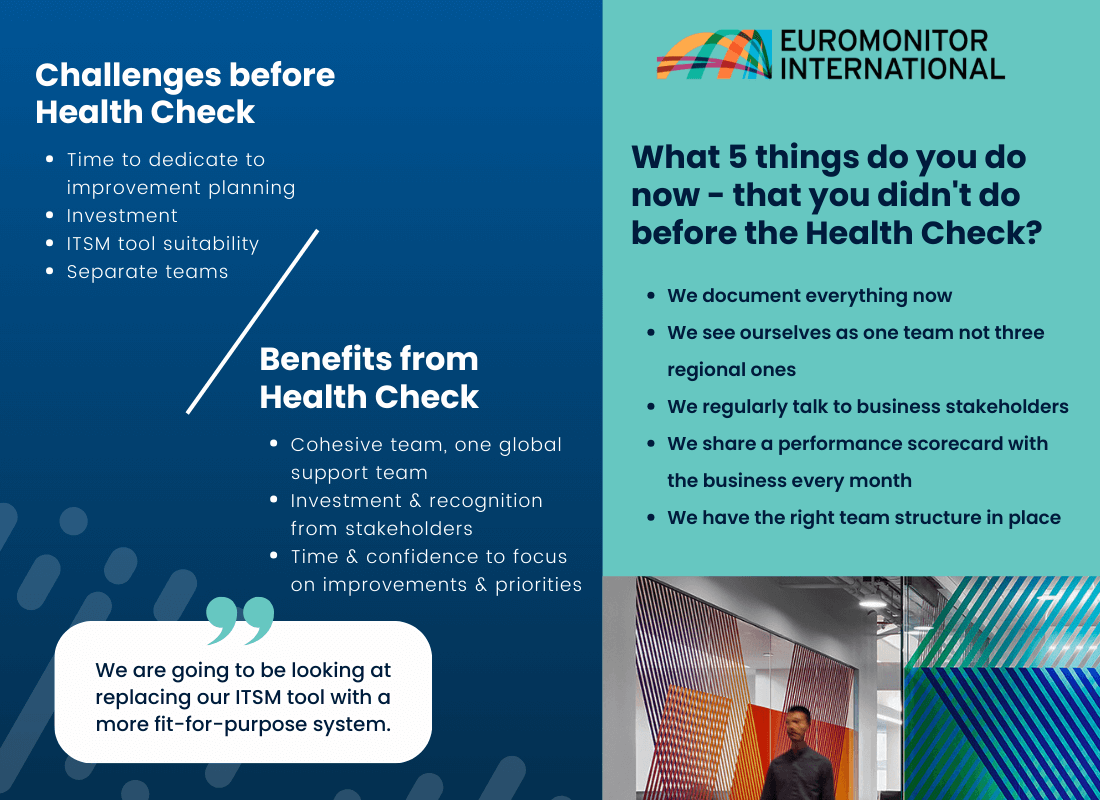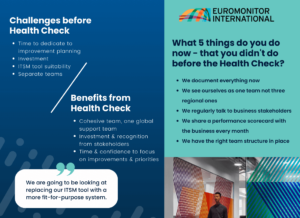A high-performing service desk is essential for delivering quality IT support, maintaining end-user satisfaction, and enabling the wider business. But under pressure from rising demand, evolving technology, and limited resources, even experienced service desks can develop blind spots.
If you’re unsure where your service is underperforming—or how to improve—it may be time for a Service Desk Health Check.
Here are 10 signs that your service desk could benefit from a fresh, expert perspective.
1. Rising Ticket Volumes with No Improvement in Resolution Times
More tickets coming in, but no change in throughput? Growing backlogs and extended wait times can point to resourcing gaps, poor workflow design, or inefficient triage. A health check can highlight the root causes and prioritise what to fix first.
2. Frequent Repeat Incidents
If the same issues keep reappearing, your team may be treating symptoms instead of addressing the root cause. This often indicates weaknesses in problem management or poor cross-team collaboration.
3. Declining or Flatlining Customer Satisfaction
If CSAT or feedback scores are stagnant or dropping, users are likely feeling let down. A health check helps identify what’s driving dissatisfaction—whether it’s resolution times, communication breakdowns, or inconsistent service quality.
4. Low Engagement with Knowledge Articles
A poorly used or outdated knowledge base slows down resolutions and increases ticket volumes. Effective knowledge sharing should be embedded in your processes—not treated as optional.
5. High Escalation Rates to Second-Line Support
If most tickets are passed beyond Level 1, it could signal a lack of empowerment, skills, or tooling. Strengthening first-line capability is one of the most effective ways to boost overall performance.
6. Staff Burnout or High Turnover
When analysts are overloaded, stressed, or unsupported, morale drops—and so does service quality. A health check considers the people behind the processes, surfacing issues that affect wellbeing and performance.
7. Metrics That Don’t Drive Action
Are your reports focused only on SLAs or ticket counts? Modern service desks need insight, not just data. A health check can help you measure what matters and make data-driven decisions that actually improve service.
8. No Clear Roadmap for Improvement
If your team is stuck in reactive mode, or improvement efforts feel ad hoc, you’re not alone. Many service desks operate without a defined maturity model or plan. A health check provides a structured, practical improvement roadmap aligned with your goals.
9. Your Tools Are Holding You Back
Clunky interfaces, manual workarounds, and limited visibility into performance are all signs your ITSM tooling isn’t supporting your team—or may need reconfiguration or replacement.
10. You’re Always Firefighting
Without time, space or structure for continual improvement, your team will remain stuck in short-term problem solving. A health check helps shift your service from reactive to proactive—one focused change at a time.
Why a Service Desk Health Check Matters
An SDI Service Desk Health Check provides:
-
A clear, objective view of your current service performance
-
Benchmarking against industry standards and global best practice
-
Practical, prioritised recommendations
-
Insights across people, process, and technology
-
A realistic roadmap for improvement based on your capacity and goals
You Don’t Have to Do This Alone
Service desk managers often carry huge responsibility—keeping services running, managing constant demand, and leading a team—all while being expected to improve. It’s exhausting, and too often, thankless.
If you’re feeling stuck, uncertain about where to focus, or under pressure to deliver more with the same resources, you’re not alone.
This is where an external, expert perspective can make a real difference.
Work with a Consultant Who Understands the Reality of Service Leadership
When you book a Service Desk Health Check with SDI, you’ll work directly with John Noctor, one of the UK’s most trusted ITSM industry subject matter experts.
An experienced service management practitioner, with over 25 years of experience, John has supported hundreds of organisations—across sectors and around the world—to transform their service operations. He has led internal service desks, worked on the front lines, and advised CIOs and transformation leaders. He understands what great looks like—and what it takes to get there.
John’s approach is practical, honest, and tailored to your needs. He’ll help you cut through the noise, see your service clearly, and build a plan that’s realistic and achievable.






















